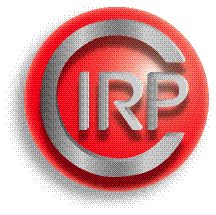Synonyms
Definition
Electrolytic In-Process Dressing (ELID-) grinding is a method for grinding hard and difficult to machine materials, such as ceramics in mirror surface quality. This is possible due to the chip absorbing ability of the generated oxide layer during electrolysis and the self-controlled sharpening process that results from a combination of preprocess dressing and in-process dressing of conductive grinding wheels whilst grinding.
Theory and Application
Introduction
Machining optical surfaces requires high surfaces qualities, as well as dimensional and form accuracy. Those can only be achieved by abrasive processes such as grinding, lapping, and polishing. For machining hard and brittle materials such as ceramics, the state-of-the-art superabrasive like diamond is used. In general, the last finishing of parts with high demands regarding surface quality and accuracy is done by lapping and polishing. But nowadays, grinding is replacing...
References
Klink A (2009) Funkenerosives und elektrochemisches Abrichten feinkörniger Schleifwerkzeuge [Electro discharge and electrochemical dressing of fine grained grinding wheels]. German PhD thesis, RWTH Aachen University, German
Lim HS, Fathima K, Senthil Kumar A, Rahman M (2002) A fundamental study on the mechanism of electrolytic in-process dressing (ELID) grinding. Intl J Mach Tools and Manuf 42(8):935–943
Ohmori H, Nakagawa T (1990) Mirror surface grinding of silicon wafers with electrolytic in-process dressing. CIRP Ann 39(1):329–332
Ohmori H, Nakagawa T (1995) Analysis of mirror surface generation of hard and brittle materials by ELID (electrolytic in-process dressing) grinding with superfine grain metallic bond wheels. Ann CIRP 44(1):287–290
Ohmori H, Katahira K, Naruse T, Uehara Y, Nakao A, Mizutani M (2007) Microscopic grinding effects on fabrication of ultra-fine micro tools. Ann CIRP 56(1):569–572
Ohmori H, Marinescu ID, Katahira K (2011) Electrolytic in process dressing (ELID) technologies: fundamentals and applications. CRC Press, Boca Raton
Qian J, Li W, Ohmori H (2000) Precision internal grinding with a metal-bonded diamond grinding wheel. J Mater Process Technol 105(1–2):80–86
Qian J, Ohmori H, Lin W (2001) Internal mirror grinding with a metal/metal-resin bonded abrasive wheel. Int J Mach Tool Manu 41(2):193–208
Rahman M, Senthil Kumar A, Biswas I (2009) A review of electrolytic in-process dressing (ELID) grinding. Key Eng Mater 404:45–59
Wegener K, Hoffmeister H-W, Karpuschewski B, Kuster F, Hahmann W-C, Rabiey M (2011) Conditioning and monitoring of grinding wheels. CIRP Ann 60(2):757–777
Author information
Authors and Affiliations
Corresponding author
Editor information
Editors and Affiliations
Section Editor information
Rights and permissions
Copyright information
© 2017 CIRP
About this entry
Cite this entry
Aurich, J.C. (2017). Electrolytic In-Process Dressing. In: The International Academy for Produ, Laperrière, L., Reinhart, G. (eds) CIRP Encyclopedia of Production Engineering. Springer, Berlin, Heidelberg. https://doi.org/10.1007/978-3-642-35950-7_16782-1
Download citation
DOI: https://doi.org/10.1007/978-3-642-35950-7_16782-1
Received:
Accepted:
Published:
Publisher Name: Springer, Berlin, Heidelberg
Print ISBN: 978-3-642-35950-7
Online ISBN: 978-3-642-35950-7
eBook Packages: Springer Reference EngineeringReference Module Computer Science and Engineering


